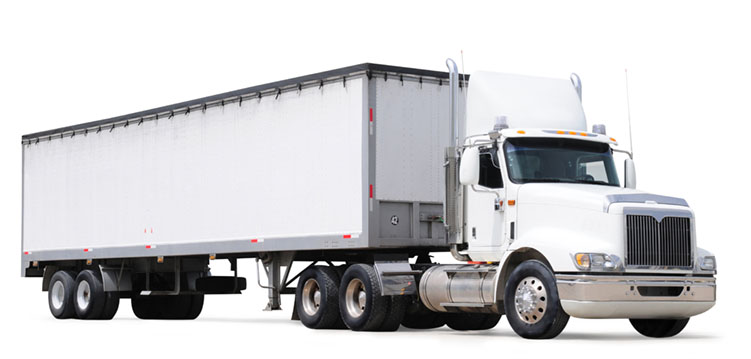
By Mary L. DePrez | Director and Counsel for Trial Court Technology and Annette Page | Project Manager for Trial Court Technology
National Highway Traffic Safety Administration (NHTSA) mission statement: Save lives, prevent injuries, and reduce economic costs due to road traffic crashes, through education, research, safety standards, and enforcement activity.
In 2016, among the estimated 145,000 people injured in large-truck-related crashes, about three-quarters (71%) were occupants of vehicles other than the large truck involved in the crash.
This statistic highlights the importance of ensuring the qualifications of all commercial drivers. In 1991, Indiana adopted the rules and regulations of the Commercial Motor Vehicle Safety Act (CMVSA) of 1986. The Motor Carrier Safety Improvement Act of 1999 amended the CMVSA by adding disqualification requirements for commercial driver’s license holders convicted of committing violations while operating a noncommercial motor vehicle.
49 C.F.R § 384.226 states:
“The State must not mask, defer imposition of judgment, or allow an individual to enter into a diversion program that would prevent a CLP (Commercial License Plate) or CDL holder’s conviction for any violation, in any type of motor vehicle, of a State or local traffic control law (other than parking, vehicle weight, or vehicle defect violations) from appearing on the Commercial Driver’s License Information System (CDLIS) driver record, whether the driver was convicted for an offense committed in the State where the driver is licensed or another State.”
Failure to comply with federal rules and regulations may result in the state losing millions of dollars in federal highway funds.
Since 2005, when the Indiana Supreme Court received a $1,000,000 grant to improve compliance with the reporting of suspensions and convictions for commercial drivers, Indiana has made significant strides in working to become 100% compliant with the Federal Motor Carrier Safety Improvement Act of 1999.
This year, an assessment was conducted by the National Center for State Courts (NCSC) on behalf of the United States Department of Transportation. The primary focus of the assessment was to identify any Commercial Driver’s License (CDL) holders who had entered into a prosecutor’s deferral/diversion program. If so, this is contrary to both state and federal laws.
Conviction Defined
According to 49 C.F.R § 383.5, “a conviction means any unvacated adjudication of guilt, or a determination that a person has violated or failed to comply with the law in a court of original jurisdiction or by an unauthorized administrative tribunal, an unvacated forfeiture of bail or collateral deposited to secure the person’s appearance in court, a plea of guilty or nolo contendre accepted by the court, the payment of a fine or court cost, or violation of a condition of release without bail, regardless of whether or not the penalty is rebated, suspended, or probated.”
In addition, Indiana Code 9-30-3-5 reads, “a conviction means a violation of a statute, an ordinance, or a regulation relating to the operation or use of a motor vehicle and any violation of a statute, an ordinance, or a regulation relating to the use of streets and highways by pedestrians or by the operation of any other vehicles.”
Prompt Reporting of Traffic Convictions
Under 49 C.F.R. § 384.208, § 384.209, § 384.225, states are required to report CDL convictions promptly (within 10 days) to the Bureau of Motor Vehicles (BMV). This requirement also applies to drivers who should have held a CDL because of the nature of their violations. Once reported to the BMV, the BMV is required to report convictions to the CDLIS, as well as report all violations for out-of-state drivers to their home states (state of CDL issuance).
Courts are the first link in this mandated reporting chain, so prompt reporting is essential. Since 2005, a primary focus of Trial Court Technology (TCT) has been to facilitate the electronic transmission of suspension and conviction information to the BMV. Approximately 15,000 records are sent through INcite (Trial Court Technology’s Extranet) each week. In 2005, the average time to transmit conviction information from the courts to the BMV was 56 days. Today, it is 3 days.
Still Work to Do
This year’s audit identified numerous cases where a CDL holder had received a diversion or deferral. As a result of these findings, TCT worked with the Indiana Prosecuting Attorneys Council to develop a communication plan to raise the awareness of this problem with prosecutors and judges, and identify ways to avoid offering diversions and deferrals to a CDL driver. Prosecutors and judges face challenges in this area due to the high volume of cases and the availability (or lack thereof) of the license type of the driver.
Prosecutors and judges should take note of State of Indiana v. Nicholas Hardgrave, No. 82A01-1504-CR-137, Ind. App., February 2, 2016, where the Indiana Court of Appeals clarified that if the driver held a valid commercial license at the time of the offense, the driver may not enter into a diversion or deferral agreement. It does not matter that the driver has relinquished the CDL endorsement since the time of the offense.
It is also important to understand that some crimes other than traditional traffic offenses, such as drug trafficking, vehicular assault, and any felony committed in any type of vehicle, carry mandatory CDL disqualification (see 49 C.F.R. § 383.51) and must be reported.
Ideally, any time a vehicle is involved, a prosecutor or judge should inquire if the defendant holds a CDL. Indiana Code 9-30-3-11(c) requires the court, within (10) days after the conviction, judgment or forfeiture of security deposit of a person, to forward a copy of the judgment to the BMV.
Trial Court Technology will continue to work with prosecutors and judges to take the necessary measures to be in compliance with Federal Motor Carrier Safety Administration (FMCSA) rules and regulations and state laws to ensure that all roads and highways in Indiana are safe for all citizens.
For additional information on this article, please contact Annette Page at (317) 234-3064 or [email protected].